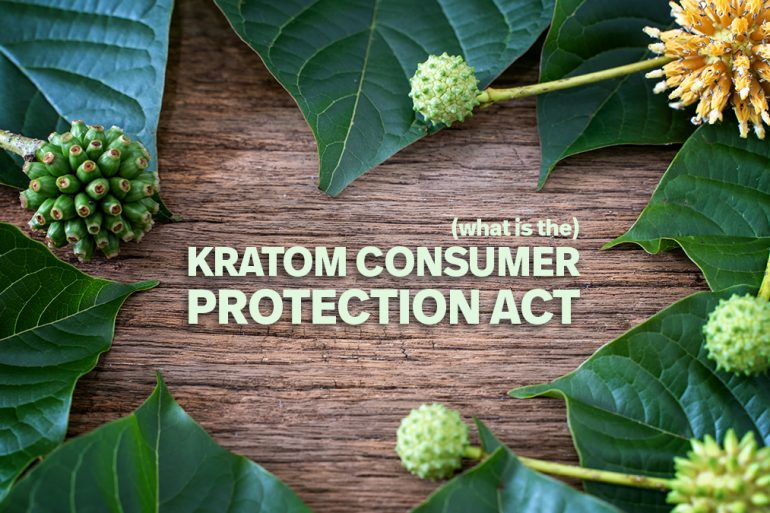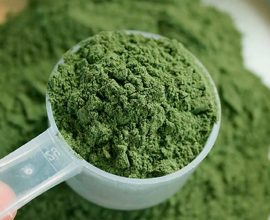Each year, the legal status of Kratom evolves as new laws and regulations governing how it may and cannot be marketed in the United States are passed. Each state has its own set of regulations on this issue, so some jurisdictions regulate and protect Kratom, while others make it outright illegal to sell or consume.
Kratom advocacy groups are working on getting legislation as the Kratom Consumer Protect Act passed nationwide. Once they are in place, the laws will aid in protecting the industry as well as Kratom customers by establishing standards for how Kratom is used, sold, tested, labelled, and utilized.
However, staying up-to-date with the most recent KCPA legislation can be a challenge. Today, we’ll update you on recent developments in a few U.S. states on these laws. But because the rules are constantly changing, it’s always a good idea to check your state’s rules to ensure you know the most up-to-date information for your area.
Familiarizing KCPA
The Kratom Consumer Protection Act, commonly referred to as the KCPA, is a bill enacted in several states to guarantee that people can legally and safely use Kratom. Because Kratom is a legal but sometimes restricted substance in the United States, advocacy groups have been working with officials from the state government to improve the industry’s regulation.
The primary purpose of making these laws is to guarantee that the Kratom industry adheres to the same safety, marketing, and legal standards as other industries.
By establishing guidelines, vendors will be held responsible for the quality of their product, packaging, and other essential factors when selling Kratom.
Furthermore, KCPA regulations typically include specific protections for people who use Kratom by stating that it is legal for adults to consume the drug. They offer protection for consumers from adulterated and harmful products and fraudulent or misleading marketing claims.
When researching KCPA laws, keep in mind that the legislation will vary from state to state.
Even though all legislation has the same name, the particular text and terms will be decided by the state legislatures and government authorities.
Oklahoma as a new Addition
Alongside states that have been able to have KCPA bills incorporated into their laws in the past, Oklahoma recently joined as the fifth state to have an official KCPA bill. The governor signed a law approved by the house in 2013 into law earlier this year. Currently, the state’s Department of Agriculture will be accountable for the implementation of its policy guidelines.
It’s been an exciting event for those who advocate. Delays caused by COVID-19 in state legislatures across the country have resulted in a significant slowing of the progress of KCPA bills across the country. But this progress has shown that states are progressively able to accept the type of legislation as the time moves on.
It will be interesting to observe what happens when Oklahoma implements the bill and whether this impacts the views or actions of neighbouring Kratom states.
Utah: Demonstration of Implementation
Utah was the most recent state to enact KCPA legislation despite Oklahoma’s recent addition. The Utah Department of Agriculture has been cooperating with an eminent advocacy organization, the American Kratom Association, to adopt the terms that Utah’s state officials have approved. The involvement of knowledgeable and educated Kratom experts is a good indicator.
You can check the status of any updates on the implementation on this page of the AKA’s website. In the meantime, you can look over the procedures and fees used to help vendors buy and sell Kratom within the state. As this process continues to develop as it progresses, additional layers of safety protection, guidelines, and security will be implemented to ensure Kratom users can utilize Kratom more securely in Utah.
Oregon Is Quite Likely to Follow
Another intriguing case to look at is the one of Oregon, which is where we are situated. In Oregon, the KCPA bill, which is also known as HB4013, was approved by Oregon’s House and Senate legislatures in the first quarter of 2021. The governor expected governors to approve the bill, but they ultimately rejected it due to an uneasy relationship regarding the state agency that should be responsible for the program.
We have always supported the efforts of the AKA to establish consumer protections. This has included going to legislative hearings, testifying, and working with many different people so that our message is clear and concise.
In the last session, advocates were able to reach out to officials and inform them about Kratom and why regulatory oversight of the market is vital for both the consumer and the industry.
We got the bill unanimously passed in the House and nearly unanimously at a near-unanimous vote in the Senate. There is plenty of evidence that suggests that we will succeed in passing the KCPA, which will have the governor’s signature in 2022.
Re-evaluations are now underway
Some states have some form of ban, whether restricted or comprehensive, that is in effect within their borders. While these bans are legally valid and active, it doesn’t mean that activists have stopped working to improve things or apply KCPA standards.
There are some states where partial bans are currently the law, and advocates are working hard. In these cases, advocates believe there is a chance of eliminating and replacing the bans with KCPA legislation.
In many instances, it is because KCPA bills will establish safety standards that eliminate most of the risk of Kratom. This alleged danger was the main reason behind any bans in place, which is why KCPA could help get bans lifted.
A few states in which advocates are optimistic about replacing bans with KCPA rules are:
* California: While some areas (San Diego) do not have Kratom bans, they are considering changing them.
* Colorado: KCPA bills will likely remain on hold until COVID-19’s threat is eliminated.
* Illinois: The bill has been submitted but has not yet been reviewed by officials.
* Rhode Island: All Kratom is currently prohibited in this state, but it is likely to be repealed by the KCPA bill currently being considered in the state.
FAQ: What does my state have to do with it?
Today’s brief news update on states that have news about KCPA regulations that are advancing through the state legislature system might not contain any details regarding your state. Anyone wondering if their state is currently implementing legislation for or against Kratom’s legality should contact those who represent them in their state. By joining with the advocates in your local area, you will get the most recent information on the latest developments in the area around you.
In the meantime, take a look at this map, which shows where Kratom is legal, where the KCPA was passed, and where Kratom is prohibited.
The map is regularly updated when things change. However, it’s only a basic overview. It’s a good idea to do more research to learn more about the specifics of your area.





